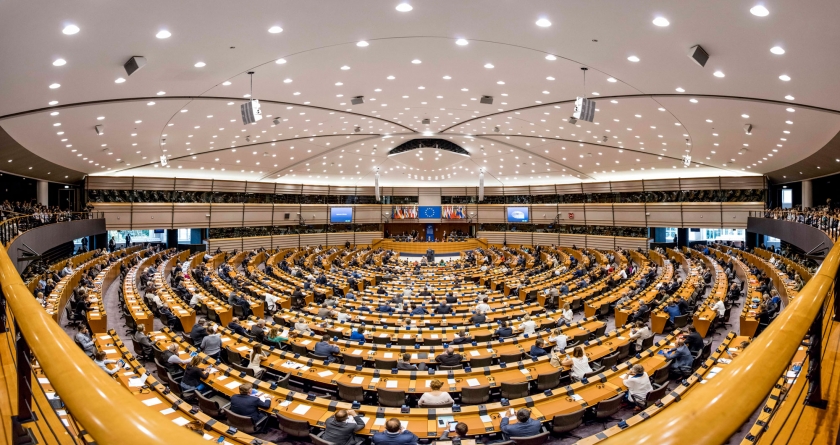Greek MEPs submitted to the EP three different questions to the Commission regarding the prosecution of the ARB:
1. Kostas Chrysogonos
2. Miltiadis Kyrkos together with Maria Spyraki
3. Nikos Androulakis
1.
Subject: Protection of freedom of the press in Greece
The magazine “The Athens Review of Books” published a reader's letter, referring to Greek Foreign Minister Nikos Kotzias’ political past as a member of the Communist Party of Greece, calling him "true gauleiter of Stalinism." The letter mentioned that "he was not a simple supporter and an admirer but also a staunch advertiser" of the Honecker regime. N. Kotzias filed a lawsuit against the magazine requesting compensation of 250,000 euros. Court judgments considered the characterisation “gauleiter of Stalinism" to be defamatory, ignoring that it is a political value judgment about a public figure. Characteristically, Supreme Court member P. Zontanou argued that the appeal of the Athens Review of Books must be accepted, but she then voted against her own report, and later was elected Vice President of the Supreme Court by the government. Since then, Mr. Kotzias has seized the accounts of the publisher and the chief editor as well as the magazine's revenues from the Press Distribution Agency, with the obvious goal of closing it down.
Does the Commission consider that there is lack of protection of the freedom of the press in relation to the above case?
3/10/2018
Kostas Chrysogonos
2.
New question to the Commission from MEPs Miltiades Kyrkos and Maria Spyraki
Subject: Protection of freedom of press in Greece
The Greek ex-Foreign Minister filed a lawsuit for libel against the magazine “Athens Review of Books” asking 250,000 euros. N. Kotzias, a long time senior member and close associate of the Secretary General of the Communist Party of Greece, author of an ideological book in collaboration with prominent members of the regime of East Germany and Yaruzelski's propagandist claimed that he was offended because a reader’s letter characterized him as “Gauleiter of Stalinism”. The judges vindicated Minister N. Kotzias. Then Mr. Kotzias turned against the magazine for the obvious reason that it exercised political critique and from July 2017 onwards he obtained a freezing order against the publisher’s bank accounts and the magazine's revenues from the press distribution agency.
- Does the Commission consider that the political leadership’s criminalization of political expression is in line with the freedom of the press?
- What is the Commission's position on the ability that Greek law affords to politicians to systematically claim compensation from the press, asking for excessive sums in compensation?
- Does the Commission consider the possibility that this and other similar cases have the goal of intimidating the press and especially when they are accompanied by court decisions that are subsequently condemned by the ECHR?
25/10/2018
Miltiadis Kyrkos - Maria Spyraki
3.
Subject: Protection of freedom of press in Greece
Former Foreign Minister Mr. Kotzias sued the magazine “Athens Review of Books” for defamation. The lawsuit which was heard at the Court of Appeals and the Supreme court during Mr. Kotzias’ mandate at the Foreign Ministry was seeking 250.000 euros in compensation because the magazine had published an uncensored reader’s letter which characterized Mr. Kotzias as “an old gauleiter of Stalinism” and “admirer of Honecker”. The court judgments accepted Mr. Kotzias claim and awarded him € 24,750 in damages despite the fact it concerned a purely political characterization. While the magazine’s publishers appealed to the ECHR, the former Foreign Minister turned against the magazine by freezing the personal accounts of the publishers as well as revenues from its distribution agency in an attempt in that way to close it down.
Does the Commission consider that the existing legal framework in Greece for the offence of defamation that effectively criminalises expression of opinion and political criticism is compatible with the right to freedom of the press, especially when many of the relevant court judgments are subsequently overturned at the ECHR?
5/11/2018
Nikos Androulakis



